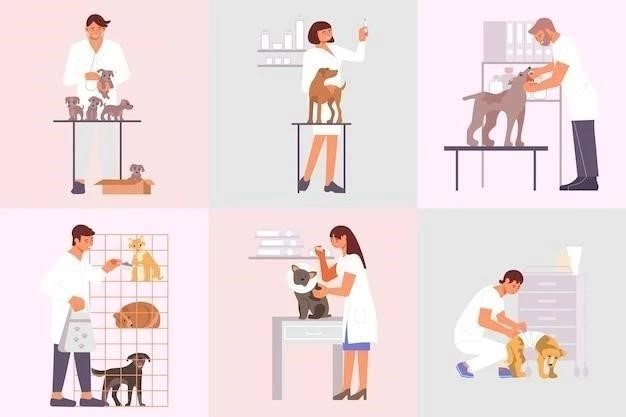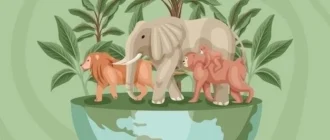Ive always been fascinated by scientific research, particularly the role animals play in advancing our understanding of biology and medicine. While the use of animals in research is a complex and often controversial topic, my own experiences have provided me with valuable insights.
My Encounter with Animal Research
My first real encounter with animal research was during my university years. I was studying biology and had the opportunity to volunteer in a lab that was researching the effects of a new drug on mice. I was initially apprehensive. I had always been an animal lover, and the thought of them being used in experiments was unsettling. However, I was also curious about the research process and eager to contribute to something that could potentially help people.
Strict Regulations and Ethical Considerations
What struck me most during my time in the lab was the strict regulations surrounding animal care and the emphasis on ethical treatment. The mice were housed in clean, spacious cages and provided with ample food, water, and enrichment. The researchers I worked with were deeply committed to minimizing any potential suffering and ensuring the animals well-being. I was relieved to see that the mice were treated humanely. The researchers explained that ethical treatment wasnt just the right thing to do, it was also crucial for the validity of the research itself. Stressed or unhealthy animals wouldnt yield reliable results.

The Importance of Animal Models
Working in the lab gave me a firsthand understanding of why animals are sometimes necessary for scientific research. While alternative methods are constantly being developed, there are still many questions that cannot be answered through cell cultures or computer simulations alone. For example, the drug I was helping to research targeted a specific protein interaction in the brain. To fully understand the drugs effects, researchers needed to observe how it interacted with the complex network of cells, tissues, and organs within a living organism.
Balancing Ethical Concerns with Scientific Progress
Despite the rigorous regulations and the clear necessity for some animal research, the ethical dilemma remains. Its a balancing act. On one hand, we have a responsibility to advance medical knowledge and alleviate human suffering. On the other, we have a moral obligation to treat animals with compassion and respect. Theres no easy answer, and its a topic that deserves ongoing discussion and scrutiny.

The Future of Animal Research
I believe the future of animal research lies in finding a balance⁚ minimizing animal use whenever possible, refining research methods to reduce any potential suffering, and continuing to develop alternative approaches. Its a complex issue with no easy solutions, but one that requires careful consideration and a commitment to both scientific progress and animal welfare.
The experience in the lab stayed with me. It didnt fully resolve my internal conflict about animal research, but it did motivate me to learn more. I started reading research papers, attending lectures on animal welfare, and even volunteering at an animal shelter in my free time. I wanted to understand the full scope of the issue.
One of the most impactful experiences I had was meeting Dr; Anya Sharma, a veterinary pathologist I met at a conference on laboratory animal science. Dr. Sharma specialized in minimizing pain and distress in laboratory animals. She showed me the intricate ways researchers were refining their techniques – from using less invasive imaging to developing better pain management protocols. She also introduced me to the concept of environmental enrichment, where animals living spaces are designed to stimulate their natural behaviors and reduce stress. It was inspiring to see such dedication to improving the lives of research animals.
My journey led me to become a strong advocate for transparency in animal research. I believe that open communication about the necessity, methods, and results of animal studies is crucial for building public trust. I began volunteering with a local organization that promoted dialogue between researchers and the public. We organized lab tours, Q&A sessions, and even developed educational materials for schools.
The more I learned, the more I realized that the issue of animal research wasnt about simple solutions, but about finding a responsible path forward. It was about acknowledging the debt we owe to animals in research while constantly striving to find alternatives and improve their welfare. Its a complex conversation, but one I believe we need to have with open hearts and open minds.
My advocacy work led me to an unexpected opportunity – a chance to observe primate research firsthand at a renowned facility in Kenya. I’ll admit, I was hesitant. Primates, with their intelligence and complex social structures, always presented the most challenging ethical questions for me. But I knew this was a chance to confront my own biases and witness the realities of such research.
The facility in Kenya focused on studying baboon populations in their natural habitat to understand the spread of infectious diseases. What struck me immediately was the researchers’ deep respect for the animals. These werent lab animals confined to cages; they were wild beings observed from afar. The researchers used non-invasive methods like collecting fecal samples and using drones to track movement patterns. They even collaborated with local communities to ensure the baboons’ safety from poachers and habitat destruction.
I spent several weeks hiking through the savanna, watching the researchers work. I saw firsthand how their findings were being used to develop vaccines and public health strategies to protect both humans and baboons from diseases like yellow fever and tuberculosis. It was a powerful reminder that animal research, when conducted ethically and with a focus on conservation, could benefit both human and animal populations.
My journey with animal research continues to evolve. I still grapple with the ethical complexities, but I’ve learned that simple answers are rare. I’ve come to believe that the most responsible approach involves a multi-faceted commitment⁚ supporting the development and implementation of alternatives, advocating for rigorous ethical oversight, and ensuring that animals used in research are treated with the utmost care and respect. Ultimately, it’s about finding a path forward that prioritizes both scientific progress and animal welfare.
After my time in Kenya, I felt a renewed sense of purpose. I realized that advocating for transparency and ethical practices in animal research wasnt enough. I wanted to be more directly involved in shaping a future where animal studies, when absolutely necessary, were conducted with the highest possible standards of care and with a constant eye toward replacement alternatives.
Thats what led me to pursue a PhD in biomedical engineering with a focus on developing organ-on-a-chip technologies. These microfluidic devices, I learned, held incredible promise as potential alternatives to animal testing for certain types of research. I was particularly drawn to a project developing a “lung-on-a-chip” — a tiny device lined with living human lung cells that could mimic the complex functions of the respiratory system.
My days were spent in the lab, hunched over a microscope, carefully culturing cells and fine-tuning the microfluidic channels of the chip. It was painstaking work, often filled with setbacks and frustrations. But every tiny victory, a successful cell culture, a smoothly flowing channel, a measurable response to a test compound — felt like a step closer to a future where animals might not have to bear the burden of scientific progress.
I often thought back to the mice I had worked with in the cancer lab, to the baboons I had observed in the Kenyan savanna. I held onto those memories, not with guilt or regret, but as fuel for my determination. I was determined to use my skills and knowledge to contribute to a future where their sacrifices paved the way for a new era of scientific exploration — one where human ingenuity and compassion could work hand in hand to advance our understanding of life itself.











Your story is a testament to the power of curiosity and the importance of seeking knowledge, even when it involves difficult questions.
The emphasis on enrichment for the animals is a detail I appreciated. It shows a genuine concern for their well-being beyond just basic needs.
The emphasis on clean, spacious cages and ample resources for the animals is reassuring. It’s clear that their well-being is a priority.
Your story highlights the complexities of scientific research and the ethical considerations involved. It’s a topic that requires careful thought and nuanced discussion.
I’m glad you had the opportunity to witness firsthand the ethical considerations in action. It’s one thing to read about it, but another to see it in practice.
Thank you for sharing your journey of understanding and acceptance regarding the role of animals in research. It’s a process that many of us grapple with.
I appreciate the balanced perspective you provide. It’s not about being for or against animal research but about advocating for the most ethical approach possible.
The transparency about the necessity of animal models in certain research areas is important. It’s not always a perfect solution, but it’s often the best we have.
Your experience mirrors the ethical guidelines I’ve seen in research labs. It’s reassuring to know that these standards are upheld across different institutions.
I admire your courage in facing your initial discomfort and volunteering in the lab. It’s through such experiences that we gain a deeper understanding of complex issues.
I appreciate your honesty about your initial apprehension. It’s a natural reaction, and your willingness to learn speaks volumes.
The example of the drug targeting a specific protein interaction in the brain illustrates why animal models are sometimes irreplaceable in research.
Your willingness to share your personal experience with animal research is commendable. It’s through such open and honest discussions that we can foster understanding.
The point about stressed or unhealthy animals not yielding reliable results is crucial. It highlights the interconnectedness of ethical treatment and scientific validity.
Your experience provides a valuable glimpse into the world of animal research. It’s a sensitive topic, but one that deserves thoughtful consideration.
The fact that you were able to witness the humane treatment of the animals firsthand is reassuring. It’s a reminder that ethical research is possible.
The fact that alternative methods are constantly being developed offers hope for the future of research. It’s a balance between necessity and continuous improvement.
Your experience in the lab provided you with invaluable insights into the realities of animal research. It’s a perspective that often goes unheard.
Your story highlights the importance of open dialogue and understanding surrounding animal research. It’s not about taking sides but about finding the most ethical path forward.
I can only imagine the initial apprehension you felt. It’s a difficult subject to grapple with, but your willingness to learn and understand is commendable.
Your experience underscores the importance of finding a middle ground in the debate surrounding animal research. It’s about weighing the potential benefits against ethical considerations.
Your story is a reminder that progress in science often comes with difficult choices and the need to find ethical solutions to complex problems.
The dedication of the researchers to both scientific rigor and ethical treatment is inspiring. It’s a reminder that these two aspects can and should go hand in hand.
I volunteered at an animal shelter in college, and it always tugged at my heartstrings. Reading about the rigorous regulations and ethical considerations in research labs gave me a sense of relief. It’s good to know that the well-being of these animals is a top priority.
The connection between animal welfare and the reliability of research results is often overlooked. Thank you for highlighting this crucial aspect.
Your story sheds light on the human side of research and the ethical dilemmas it can present. It’s a reminder that scientists are people too, grappling with complex issues.